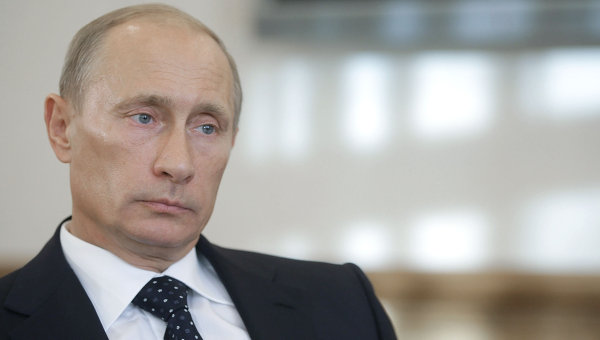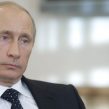
Stalin’s Shadow over the Post-Reset Meeting Between Putin and Obama
Publication: Eurasia Daily Monitor Volume: 10 Issue: 114
By:

The Group of Eight (G8) summits have traditionally been seen more for their vanity than substance, and the one that opens today (June 17) in Lough Erne, Northern Ireland, will not be an exception. The members of this privileged club—the United States, United Kingdom, France, Canada, Germany, Japan, Italy and Russia—see no particular need to overcome their differences in managing the world’s slow-burning crises, from the economic slowdown to Syria. Besides the photo-ops, the main content of these tightly scripted get-togethers is supposed to be generated in the back rooms, and the most private of those is this time reserved for the meeting between US President Barack Obama and Russian President Vladimir Putin, which should have happened a year ago, had Putin not opted to skip the May 2012 G8 summit in Camp David. The key figures in the Obama administration have far outdone their Russian counterparts in preparing an agenda for this tete-a-tete but succeeded only in downplaying the criticism of Putin’s persecution of political dissent, while no breakthrough in arms control is in the making (Kommersant-FM, June 14). Expectations that Russia could show some flexibility on Syria are arrested by the long-postponed announcement in Washington on providing military aid to the rebels. And what little understanding there was on issues looming over the wider Middle East is shattered by Putin’s statement that he has “no doubt that Iran is compliant with the rules” in executing its nuclear program (Gazeta.ru, Moscow echo, June 14; Forbes.ru, June 12).
Putin’s interview on the Kremlin’s plans for the G8 summit contained nothing but economic platitudes, but he was far less circumspect in the “informal” meeting with Russia Today journalists, elaborating on the “fundamental cultural differences” that complicate relations between “spiritual” Russia and the US, which “began to view itself as an empire” (RIA Novosti, June 14; see EDM, June 13). The Russian president discussed the hidden “catch” in the posture of protector against constructed threats because “an empire cannot afford to display weakness.” But in speaking about the US, Putin was, in fact, spelling out his own worries about Russia. What was really odd about that meandering flow of reflections was the unexpected invocation of Soviet dictator Joseph Stalin, who, in Putin’s opinion, would not have used nuclear weapons against Germany in spring of 1945, if he had them, in contrast to the US, which “dropped the bomb on Japan, a country that was a non-nuclear state and was very close to defeat.” This exercise in alternative history reveals Putin’s deep desire to emulate the brutal effectiveness of Stalin’s leadership (Vedomosti, June 13).
The key to the success of any present-day leadership is economic performance, and Putin is increasingly irritated with Russia’s falling growth rates, while insisting that the economy is “rather healthy.” He reprimands the government ministers for not executing his economic orders but cannot accept the proposition that it is exactly the extra rigid state control that causes the slowdown. Moreover, he is particularly irked with the incessant capital flight, which has reduced the Moscow stock exchange to a yearly low (Kommersant, June 15). In the budget address last week, Putin abandoned the demand to eliminate the deficit and admitted that the model of fast-expanding expenditures covered by inflowing petro-revenues has stopped working (Nezavisimaya Gazeta, Moskovskie Novosti, June 14). Nevertheless, he is adamant that both the government’s social commitments and the rearmament program would be funded in full. The economists who dare to disagree find it safer to develop their arguments in Paris (see EDM, June 3). The concept of “modernization,” initially advanced by current Prime Minister Dmitry Medvedev during his disappointing presidency, opened the way for overcoming Russia’s dependency on exports of raw materials. But Putin can neither follow this avenue, which departs from the wishfully improved investment climate, nor invent an alternative (Vedomosti, June 14).
Finding satisfaction only in the fact that European Union economies are also sinking into deeper troubles, Putin seeks to escape from the economic dead end by invigorating his political base—taking a leaf out of Stalin’s book on mobilizing the “masses.” The pompous gathering of the so-called Popular Front, last week, elected him the leader by the simple means of shouting out loud his name, which quite compensated for the lack of a comprehensible platform for this “social movement” (Ezhednevny Zhurnal, June 14). Aggressive rhetoric, which focused on defending Russia’s sovereignty, should signify the differences between this proactive Front from the decomposing United Russia party (aptly labeled by opposition blogger and activist Alexei Navalny as the “party of crooks and thieves”). United Russia has become a political liability for Putin, not least because it is Medvedev who formally holds the position of its chairman (Novaya Gazeta, June 14). Instead of deepening the ranks of his followers, this front-building may in fact result in narrowing Putin’s support base as the apparatchiks of United Russia feel abandoned. For many Putinists-by-default, who see him as the best option for upholding stability, the hysterical adoration displayed by the new cult is rather revolting.
Putin’s lieutenants have recognized the vulnerability stemming from public disgust over shameless corruption, and so are seeking to move the confrontation with the “white opposition” to the field of traditional values—from the Kremlin-centric “patriotism” to religion and family—and the Popular Front is supposed to be instrumental in polishing these values. Discrimination against minorities and pressure on the opposition invite sharp criticism from the European Parliament and turn Germany into a firm opponent of Russian neo-authoritarianism, even if the Obama administration treads very carefully in this field (Kommersant, Nezavisimaya Gazeta, June 14). Western opinions may have limited resonance in Russia, but the hypocrisy of these newly-born Russian upholders of virtue is so transparent that many Russians turn against the ruling elite rather than against the “cosmopolitan” liberal opposition (Grani.ru, June 14).
Stalin was able to build a myth of his omniscience and infallibility, but Putin’s attempts to elevate himself to the position of peerless potentate betray only his departure from reality—and make him into an eccentric figure in the G8 club otherwise composed of liberal democracies. He may believe that Russia is so anti-modern and unsuitable for democratic institutions that only Stalinist political “technologies” could work, but every vibrant sprout from Russia’s deep cultural foundation disproves this self-serving belief. Russia is struggling to stay on track of modernization despite the “freeze” orders issued from the Kremlin, and it is a challenge to Obama to connect with this struggle above Putin’s posturing and Stalin’s shadow.




